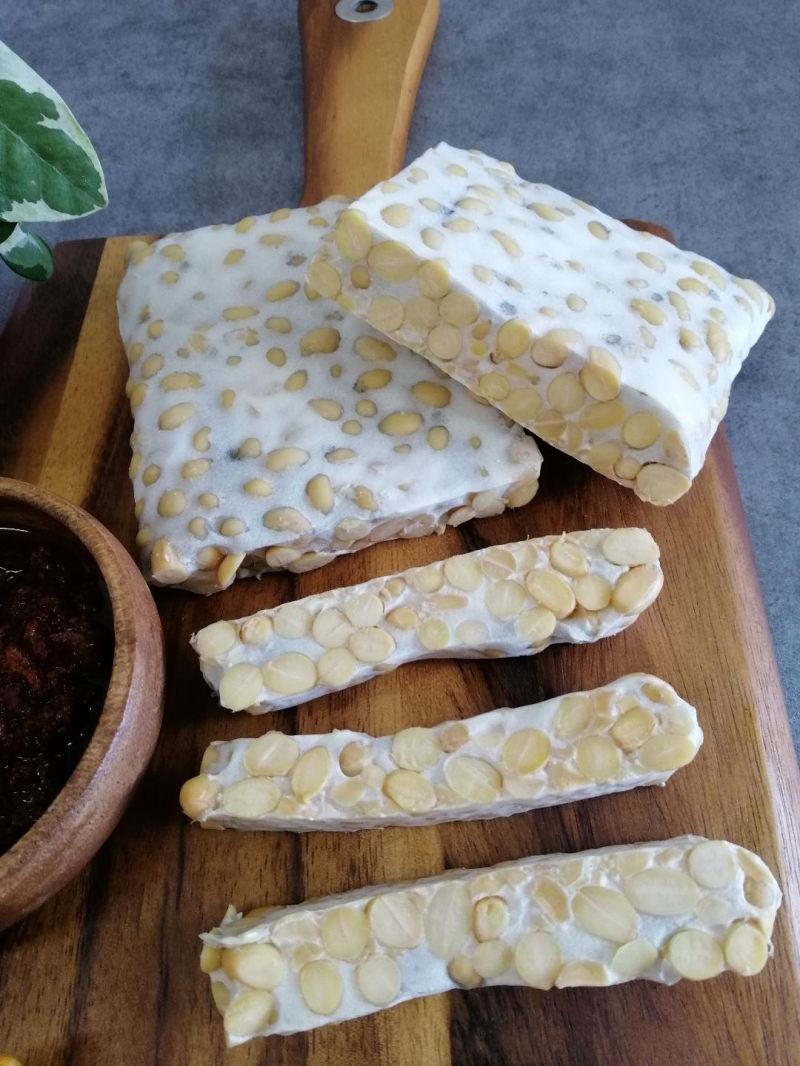Tempeh

Tempeh is a traditional Indonesian food made from soybeans that have been fermented or broken down by microorganisms. Following fermentation, the soybeans are pressed into a compact cake commonly consumed as a vegetarian source of protein. In addition to soybeans, other bean varieties may be used to make tempeh. It may also be made from wheat or a mixture of soybeans and wheat. Tempeh has a dry and firm but chewy texture and a slightly nutty taste. It can be steamed, sautéed, or baked. Recipes often recommend marinating it to add more flavor.
Much like other meatless sources of protein, such as tofu and seitan, tempeh is a popular choice among vegans and vegetarians because it’s packed with nutrients. Tempeh is a probiotic food that influences your gut microbiome. Your gut microbiota is the bacteria that reside in your digestive system. It also seems to be rich in prebiotics — types of fiber that promote the growth of beneficial bacteria in your digestive system.
Studies have found that prebiotics increases the formation of short-chain fatty acids in the colon. These include butyrate, which is the primary source of energy for the cells that line your colon. Evidence also suggests prebiotic supplements cause beneficial changes in the gut microbiota. Although studies have provided mixed results, some have associated prebiotic intake with increased stool frequency, reduced inflammation, and improved memory.











